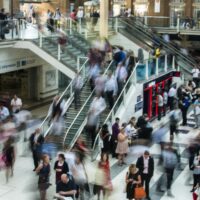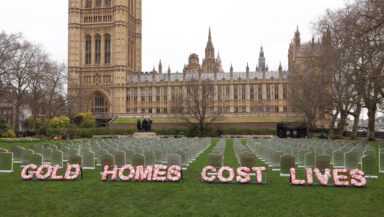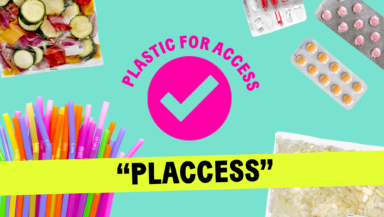This is a guest post from writer and campaigner Melissa Parker
Disabled people are among the worst affected by climate change and environmental breakdown. Climate change impacts marginalised groups first, and the disabled community is the largest marginalised group. So many disabled people are doing vital work for the planet. But our efforts are hindered by a society that often seems indifferent to our needs.
I spoke to four leading disabled women with radically different experiences who continue to fight for climate justice and to be a voice for disabled people in different ways.
“We have to fight to live – but we can’t ‘moan’ about it”
Dr Harriet Larrington-Spencer is a Research Fellow at the Active Travel Academy and is passionate about active travel, including how to help disabled people become more active.
When Harriet became disabled and then chronically ill, she started to think much more about the assumptions and biases ingrained within environmentalism. She loved cycling and realised after becoming disabled that there were many challenges to ensuring that she could freely use her trike.
Unless you’re disabled, it is difficult to understand the struggle and the frustration, “It can often be exhausting as a disabled person to get involved in environmentalism.”
Because we’re shamed for our access needs but still have to be disability rights activists daily. Consider the barriers often placed on cycle routes. These are the “physical embodiment.” of how disabled people are told to be environmentalists but then hindered when they try.
Harriet’s work has given her a considerable platform on Twitter – It’s a privilege, she acknowledges, to have such a platform where she can publicly point out an error and shame organisations into action – it’s an effective tool.
She gives the following example: a council put parking spaces in front of a dropped curb, which is supposed to help disabled people get up a curb safely.
The parking spots were burned off when she highlighted the issue of accessibility. She remarks that alongside this power, there is the daily grind of being labelled a “disabled killjoy – it’s our responsibility to fight to achieve the most basic tasks – but we can’t ‘moan.'”
It feels like disabled people spend their lives pointing out the obvious. Perhaps we agree – this is one of the most important examples of non-disabled privilege – the ability not to consider the small barriers and the consequences. As Harriet concludes passionately, “we have to fight to live.”
“People in power will justify exclusion by saying ‘you can’t please everyone.’ Never accept that.”
Pauline Castres is a disabled climate activist and artist. She has spent a decade working on global health, climate, and disability rights policy. She holds various roles, including working for the British Medical Journal and The Lancet on the effects of air pollution on the public’s health and leading a health portfolio for UNICEF UK.
Seeing her work “in action” gives her hope for the future. She uses the example of a training session she ran for a significant environmental NGO last year, “everyone was so engaged, and the feedback I received was so positive. Experiences like this really give me hope that my work and so many other disabled activists do is challenging perceptions and building new partnership pathways.”
There have also been moments which have given her pause, “There have been many. Some made me see the unfathomable hypocrisy of systems, including those supposed to support us. Then there have been those that have been unsurprisingly hurtful, for instance, when I tuned in to a COP26 event entitled ‘The Voiceless Revolution’, where disabled people, even those whose disabilities have left them literally without a voice, weren’t mentioned.
Further, “my moments of epiphany have led me to think that we need to build communities of support because we can’t rely on businesses or policy-makers to do what’s needed and protect us.”
Asked to define what success looks like for her, she ponders the system we find ourselves in, “success is when a policy delivers concrete and sustainable changes to help those who are most left behind. There are huge inequalities even within activism spaces, and we can only call ourselves successful when the poorest and most marginalised experience a real difference in their lives.”
She advises: being cautious of “low hanging fruit” policies and overly simplistic “silver bullet” solutions.
As to what she has learned along the way, she mentions a conversation she had with a policy-maker about including disabled people in the movement: The answer was “you can’t please everyone.” Pauline’s advice? “Never to accept that. Instead, allow yourself to take space and hold onto your humanity in the darkest moments. Your voice deserves to be heard.”





